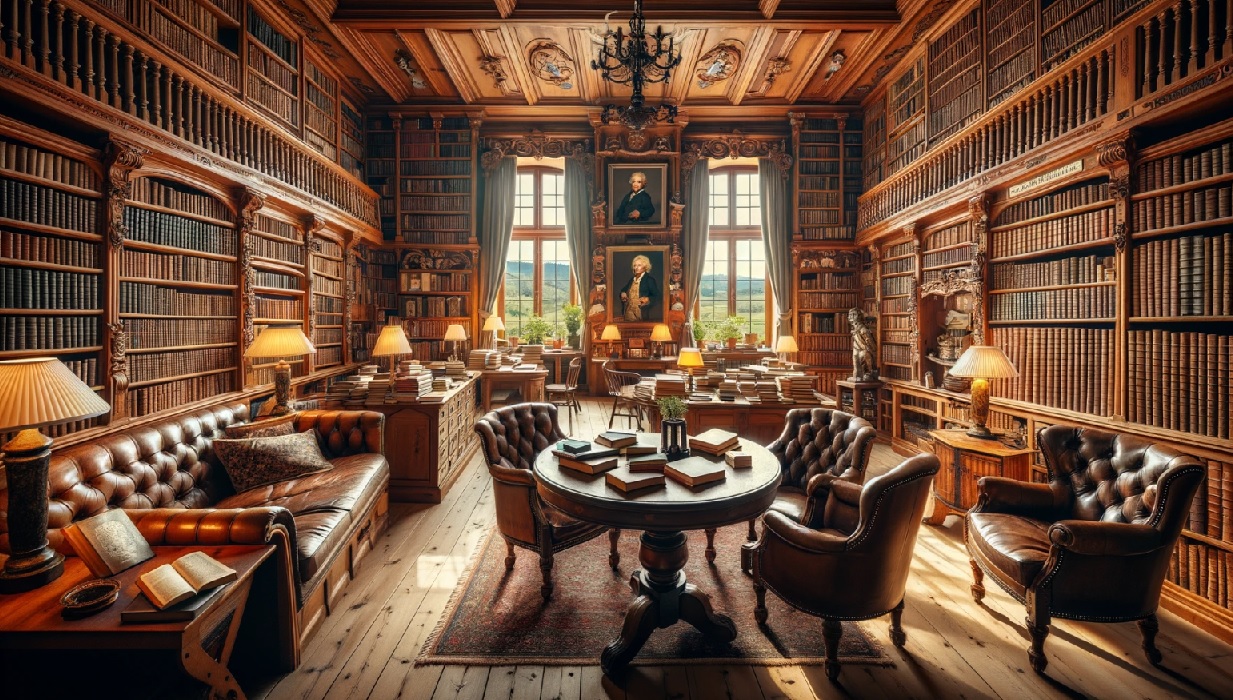
Germany’s literary landscape is a vibrant tapestry woven with the threads of history, philosophy, and imagination. From the enchanting fairy tales of the Brothers Grimm to the profound novels of contemporary authors, German literature boasts a rich heritage that has significantly influenced the global literary scene. This article explores the evolution of German literature, shedding light on its key figures, movements, and contributions to the world of letters.
The Beginnings: Folklore and Fairy Tales
German literature’s roots are deeply entrenched in folklore and fairy tales. The Brothers Grimm, Jacob and Wilhelm, are iconic figures whose collections of folklore, “Grimm’s Fairy Tales,” have captivated readers worldwide. Compiling tales such as “Cinderella,” “Snow White,” and “Hansel and Gretel,” they preserved Germany’s oral storytelling tradition, laying the foundation for the country’s literary journey. Their work transcends entertainment, offering insights into the cultural and social fabric of early 19th-century Germany.
The Sturm und Drang Movement
The late 18th century saw the emergence of the Sturm und Drang (Storm and Stress) movement, a precursor to Romanticism characterized by emotional tumult and rebellion against societal constraints. Johann Wolfgang von Goethe and Friedrich Schiller, the movement’s proponents, explored human emotion and individuality in their works. Goethe’s “The Sorrows of Young Werther” sparked a cultural phenomenon, while Schiller’s plays and poems delved into freedom, morality, and beauty, themes that resonated deeply with the German spirit.
The Age of Enlightenment and Classical Weimar
The Enlightenment brought reason and rationality to the forefront of German literature. Immanuel Kant, although primarily a philosopher, significantly influenced literary thought with his emphasis on autonomy and enlightenment. The Classical Weimar period, marked by the collaboration between Goethe and Schiller, produced works of enduring beauty and intellectual depth, blending Enlightenment ideals with aesthetic perfection.
Romanticism and Beyond
Romanticism in Germany was a multifaceted movement that sought to elevate the mystical and the natural. Novalis, E.T.A. Hoffmann, and Heinrich Heine were prominent figures who explored themes of love, nature, and the supernatural, challenging the rationalism of the Enlightenment. Their works paved the way for later literary developments, intertwining with Germany’s national identity and philosophical thought.
The 20th Century: War, Division, and Reunification
The tumultuous 20th century, marked by wars and division, profoundly impacted German literature. The Weimar Republic’s era witnessed the rise of writers like Thomas Mann and Bertolt Brecht, who addressed the socio-political issues of their time. Post-World War II literature grappled with themes of guilt, memory, and identity, with authors such as Günter Grass and Heinrich Böll examining the moral and ethical aftermath of the war.
The division of Germany into East and West produced distinct literary traditions. In East Germany, authors like Christa Wolf navigated the constraints of censorship to critique the regime subtly. West German literature, meanwhile, explored existentialism and the quest for meaning in a fragmented world.
The reunification of Germany in 1990 ushered in a new era for German literature, marked by a search for unity and identity in a newly combined nation. Authors like W.G. Sebald and Jenny Erpenbeck have since explored themes of memory, history, and belonging, reflecting on Germany’s past and its implications for the present and future.
Contemporary German Literature
Today, German literature continues to thrive, with authors exploring a wide array of themes from globalization and migration to technology and environmentalism. Writers such as Daniel Kehlmann and Juli Zeh blend narrative innovation with acute social observation, while Olga Grjasnowa and Saša Stanišić examine the experiences of immigrants and the complexities of identity in a globalized world.
The rich tapestry of German literature, from the Brothers Grimm to contemporary authors, offers a window into the soul of a nation that has faced immense challenges and transformations. It is a literature that celebrates the power of storytelling, the depth of human emotion, and the relentless quest for understanding in an ever-changing world. As we delve into the works of German authors, we are reminded of the universal themes that connect us all, transcending time and place. German literature, with its historical depth and contemporary vibrancy, continues to be an essential part of the world’s literary heritage, inviting readers to explore the complex, beautiful mosaic of human experience.
By exploring the evolution of German literature, we not only celebrate its contributions to global culture but also gain insights into the enduring questions that define our shared humanity. From the magical realms of fairy tales to the poignant reflections of modern novels, German literature invites us on a journey through the heart of human creativity and intellectual endeavor.
Related articles:
German Fairy Tales: How Brothers Grimm Shaped World Literature
German Superstitions and Folklore
Germany’s Pagan Past: How Ancient Germanic Tribes Lived and Worshipped
E.T.A. Hoffman
Bertolt Brecht
Johann Wolfgang von Goethe
Friedrich von Schiller – the German Genius of Beauty and Freedom
Grimms’ Brothers Fairy Tales
Heinrich Theodor Böll
